Evidence and society in the UK: public perceptions and homelessness
Outline of this Survey
This study presents findings from a poll by Ipsos MORI of over 2,000 adults in the UK examining public knowledge, attitudes, and misconceptions about homelessness. Surveys took place in 2020 and 2021.
The research reveals significant gaps between public perceptions and reality, with important implications for policy support and reducing stigma towards people experiencing homelessness. While the UK public generally views homelessness as a serious problem requiring action, misconceptions about its causes and characteristics persist, and sympathy toward people experiencing homelessness has weakened since the early phase of the COVID-19 pandemic.
Findings in brief:
- The public estimate of homelessness (14% of UK adults) is much higher than its actual size - around 0.5% of the population
- Only 20% of people understand there are more adults experiencing 'hidden homelessness', such as sofa surfing, than street homelessness
- Substance use problems are vastly overestimated: the public estimates this affects 49% of people experiencing homelessness, whilst official data indicates this is only 4%
- Homelessness affects many people personally: 28% of UK adults say they have experienced homelessness themselves, through family, or close friends
- 46% of people believe homelessness results from circumstances beyond individuals' control. Only 24% currently attribute it to poor personal choices. However, this figure is increasing
- Support for action to address homelessness remains strong, though is lower than in the previous survey (74%, down from 79%)
- There is widespread support for a programme of emergency accommodation during the winter months similar to ’Everyone In’
- 61% of people prefer evidence-based decisions, rather than what feels right
- 71% of people prefer the more realistic goal of making homelessness ’unusual and short-lived’, rather than completely ’ending’ it.
Recommendations in brief:
- Launch UK-wide public education campaigns to maintain awareness and concern and address misconceptions about the scale and nature of UK homelessness, particularly the prevalence of substance use issues.
- Ensure key messages highlight the systemic causes of homelessness and focus on making homelessness rare, brief and non-recurring, illustrate the diversity of people experiencing homelessness and the positive impact of housing support and eviction protection
- Promote understanding of hidden homelessness, including sofa surfing and temporary accommodation
- Support policy advocacy with evidence that the public wants governments to guarantee decent, affordable housing for everyone
- Leverage public support for evidence-based policy by clearly communicating research findings to policymakers and the public
- Build on support for emergency interventions like ‘Everyone In’ to develop comprehensive year-round responses to homelessness
- Monitor public opinion to understand trends in attitudes towards homelessness during different economic and social conditions.



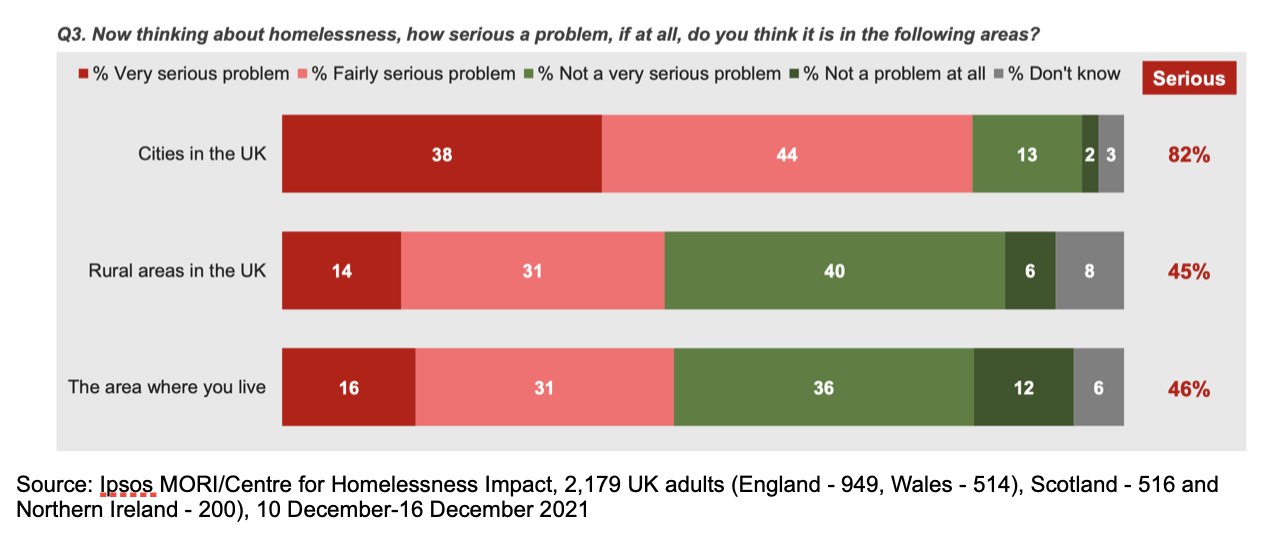



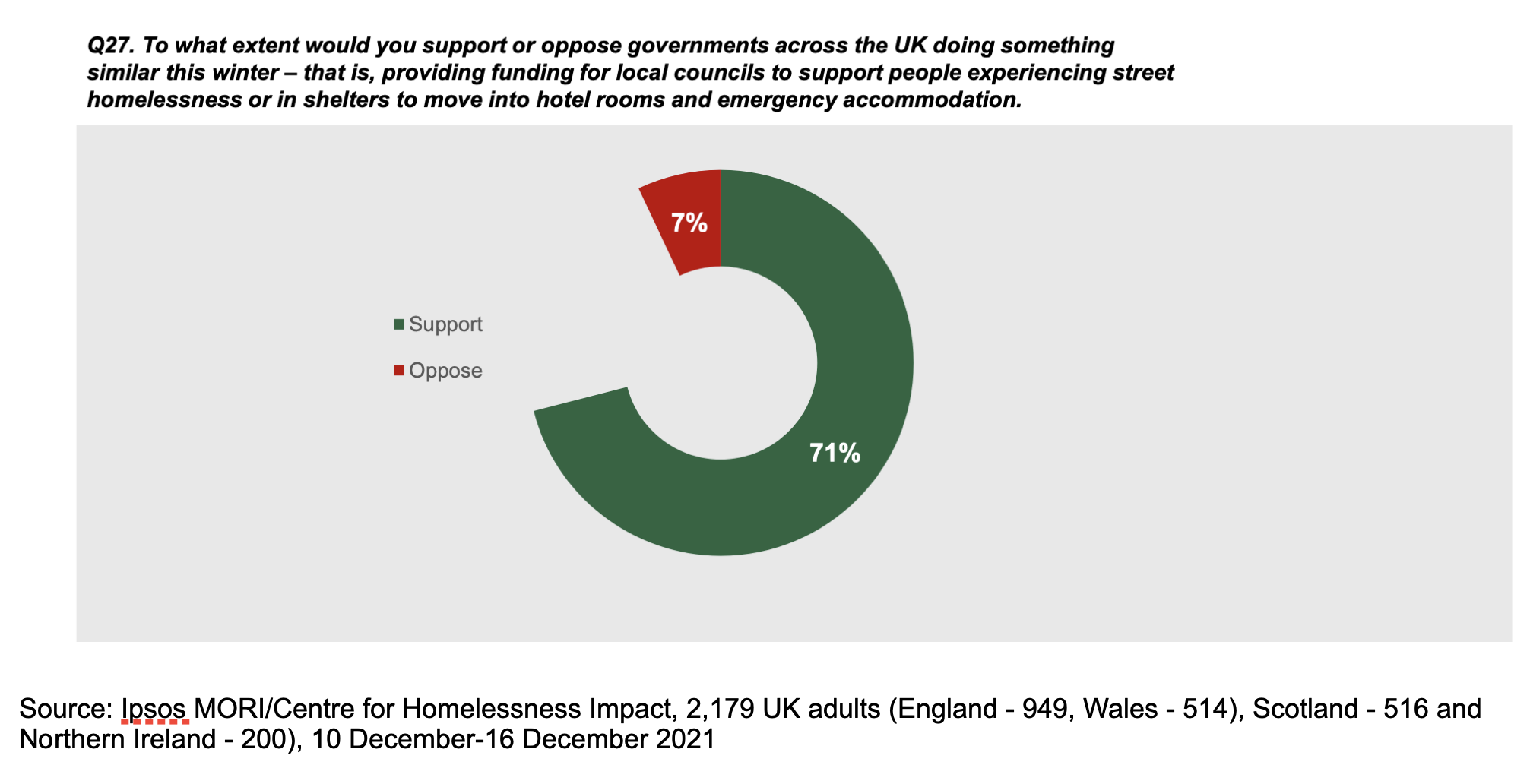
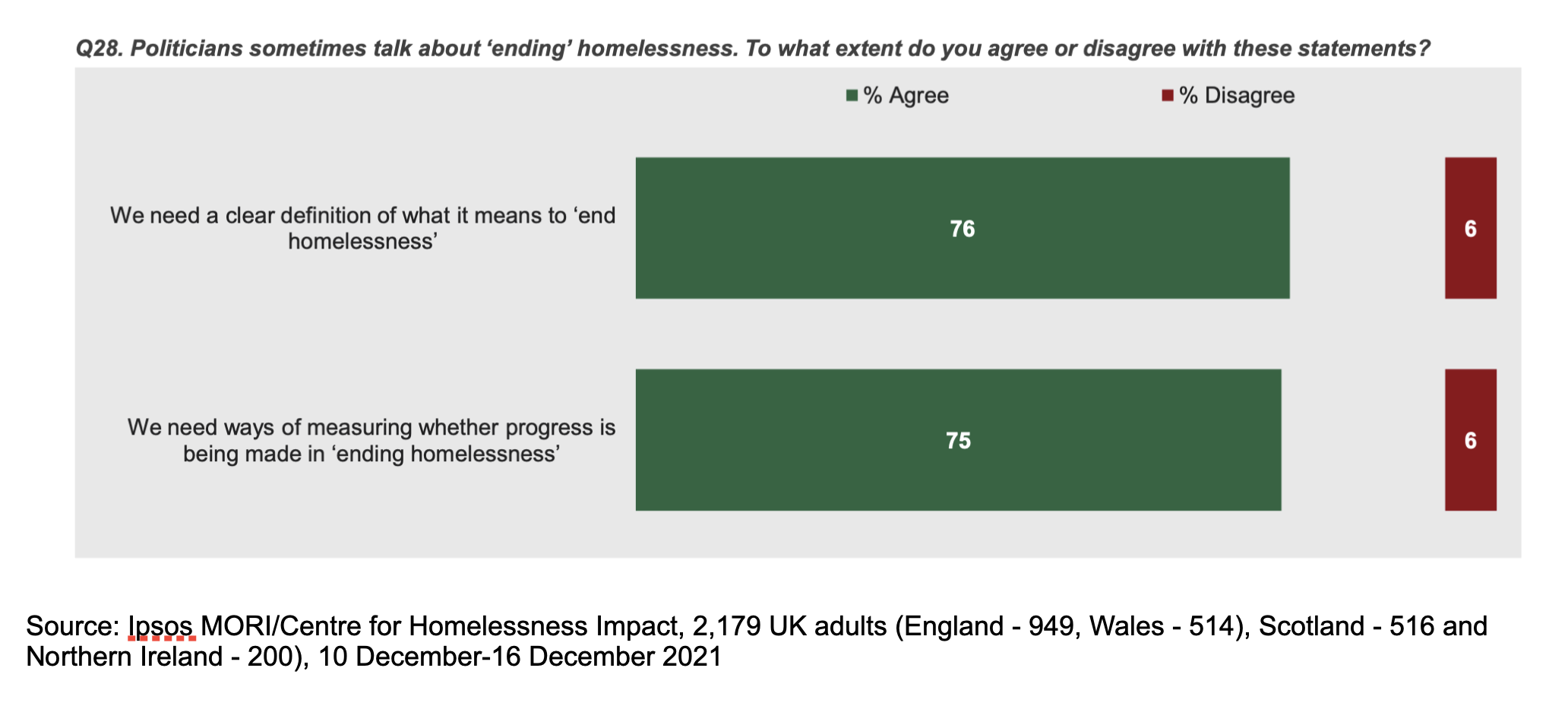

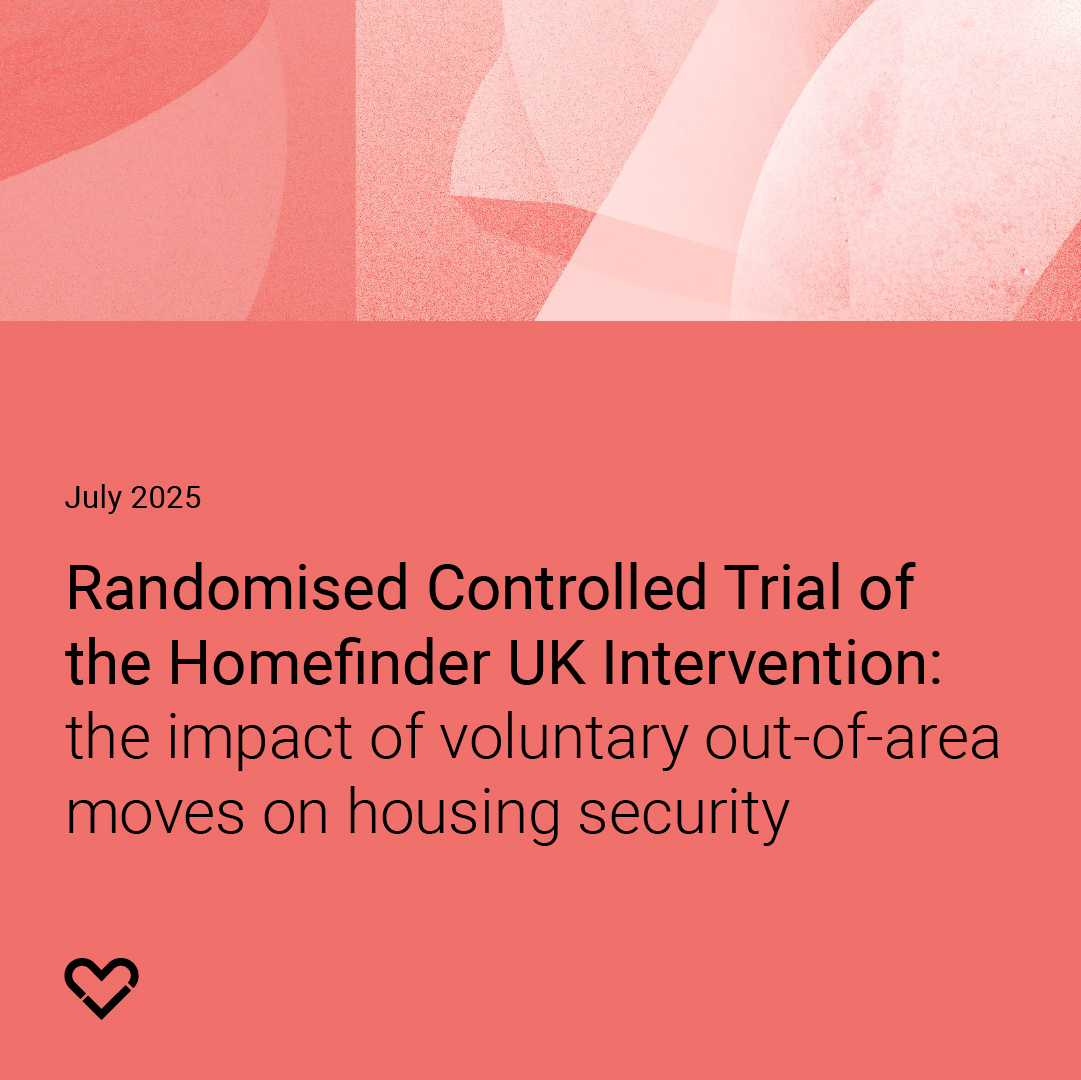
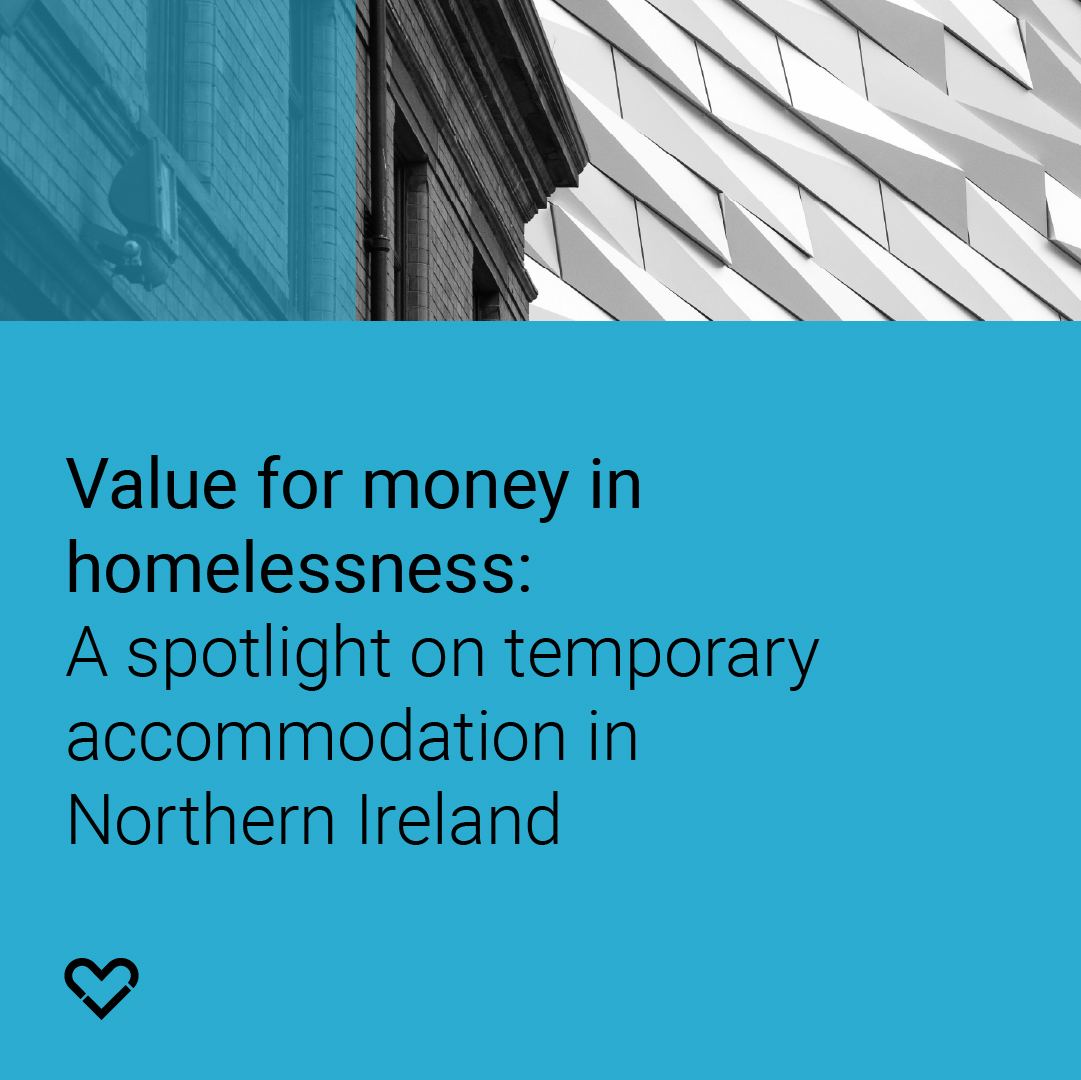
.jpg)

